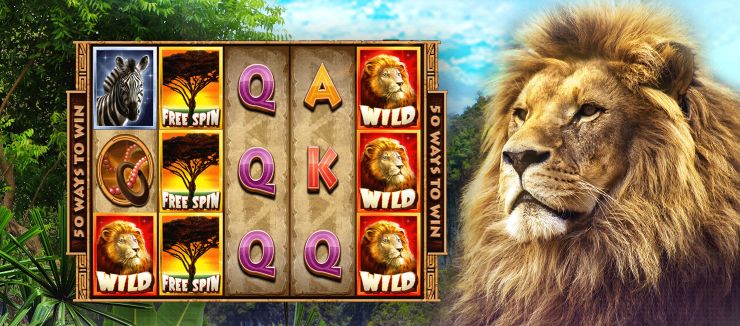Gambling is a massive global industry, generating billions of dollars annually. Most of this money goes toward entertainment, business profits, and sometimes public programs like education or healthcare. But could gambling also play a role in protecting endangered species?
The idea is not as far-fetched as it sounds. By allocating part of the revenue to conservation efforts, gambling could help fund wildlife protection. Moldova and Canada provide two interesting examples of how this could work.
How Gambling Works in Moldova and Canada
Moldova’s gambling sector operates under Law No. 291, which was updated in 2017. This law allows online gambling operators to function legally, even without local licenses, provided they adhere to international regulations.
In Moldova, online slots dominate the gaming landscape, favoured for their dynamic gameplay, user-friendly interfaces, and substantial payout potential. For players seeking quality platforms to enjoy these games, here’s a hub where Moldovans go for quality entertainment. This page highlights platforms with secure gameplay, attractive bonuses, and compatibility with a variety of devices, ensuring a seamless and enjoyable gaming experience. Beyond entertainment, the industry’s contribution extends to potential funding for environmental initiatives, exemplifying how economic and ecological goals can align.
Canada: Well-Structured Gambling Industry
In Canada, gambling is regulated at the provincial level. For instance, in Ontario, iGaming Ontario – a subsidiary of the Alcohol and Gaming Commission of Ontario (AGCO) – conducts and manages internet gaming provided through private operators. This framework ensures that online gambling operates within a legal and regulated environment, offering consumer protection and contributing to public funds.
Profits from casinos and lotteries in Canada often support public services such as healthcare, education, and community development. By allocating a portion of gambling revenue to these sectors, provinces can enhance community well-being and infrastructure. This model demonstrates how regulated gambling can serve as a significant source of funding for essential public programs.
Can Gambling Really Save Endangered Animals?
In some places, gambling profits are used for public services like schools and hospitals. So why not use a slice of this revenue for wildlife? It could fund habitat protection, anti-poaching efforts, or breeding programs for endangered species.
What’s the Potential?
- Moldova’s National Lottery could dedicate funds to protecting local wildlife, like rare birds or forest habitats.
- Canada’s provincial gambling profits could help save species like caribou or support conservation in national parks.
But it’s not that simple. Governments and casinos would need to work together, and not everyone trusts gambling money to be used responsibly. Transparency would be key.
Conservation Projects Funded by Casinos
While Moldova hasn’t yet linked gambling revenue to conservation, its focus on responsible gambling provides a good starting point. The National Lottery could introduce grant programs specifically for environmental causes, such as wildlife protection or reforestation projects.
Canada offers examples of how gambling revenue can support conservation. For instance:
- British Columbia: Gambling profits have funded environmental education initiatives.
- Ontario: Programs like the OLG’s contributions to community projects could expand to include direct support for endangered species.
These efforts show that the connection between gambling and conservation isn’t just possible – it’s already happening on a small scale.
Wildlife-Themed Slots and Their Impact on Awareness

Slots like Wolf Gold by Pragmatic Play and Jammin’ Jars by Push Gaming are big hits in Moldova and Canada. These games feature animals and nature-inspired themes, making them fun and engaging for players.
Wildlife-themed slots do more than entertain – they educate. Players are reminded of nature and wildlife through vibrant graphics and storytelling. Imagine if a portion of the profits from these games went directly to conservation efforts. It would turn every spin into a small contribution to saving endangered species.
Why It’s Hard to Use Gambling Revenue for Wildlife
Different Rules and Regulations
In Moldova, the absence of a national licensing system complicates efforts to earmark gambling funds for conservation. In Canada, each province has its own approach to gambling revenue, making coordination difficult.
Public Skepticism
Many people view gambling as harmful, making it hard to convince them that its revenue could serve a good cause. Transparent reporting and clear communication are essential to overcome this skepticism.
Ensuring Accountability
To build trust, governments and casinos must show exactly how gambling funds are used for conservation. Without clear accountability, public support could waver.
Steps Toward a Sustainable Model
Step 1: Partner with Conservation Groups
Casinos could team up with organizations working to protect endangered species. For example, they could sponsor anti-poaching efforts or fund wildlife sanctuaries.
Step 2: Educate Players
Players should understand how their gambling supports conservation. Clear messaging on casino websites or during gameplay could make a big difference.
Step 3: Run Themed Campaigns
Casinos could launch campaigns like “Save the Tigers,” where a percentage of revenue from tiger-themed slots is donated to conservation efforts.
Can Gambling Really Make a Difference for Wildlife?
Yes, it can. While challenges exist, the potential for gambling revenue to support endangered species is huge. Moldova and Canada have the opportunity to lead this movement by creating frameworks, educating players, and ensuring transparency.
With the right systems in place, gambling could become a surprising ally in the fight to protect wildlife. It’s time for governments, casinos, and players to step up and make it happen.
